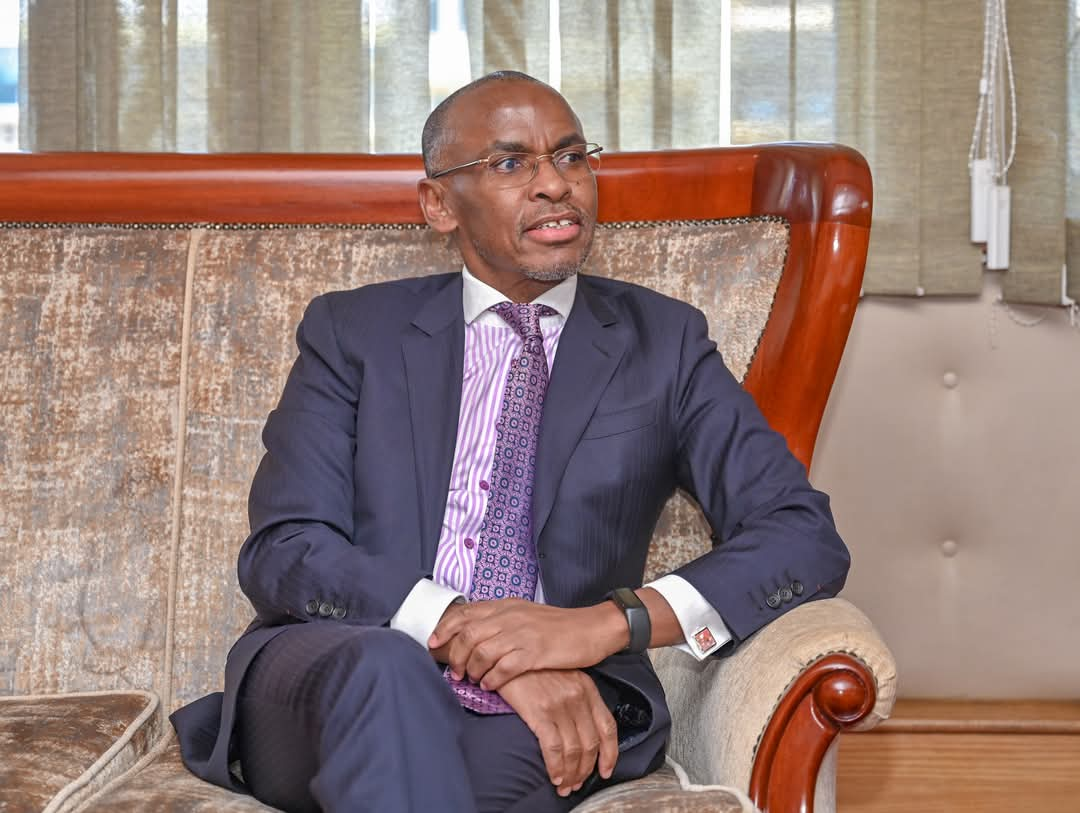Business
Safaricom Accused of Press Freedom Suppression As The Firm Sues Another Investigative Journalist Probing Alleged Links To Abductions
Kituyi, represented by the Katiba Institute, had requested details from Safaricom on the number of court orders it received from police authorities between June and October 31, 2024, seeking personal data or communication details of individuals under investigation.

The telecom giant Safaricom has sparked outrage after filing a lawsuit against investigative journalist Robert Wanjala Kituyi, who sought critical information about the company’s handling of customer data amid allegations of its involvement in abductions.
The move, branded by critics as a Strategic Litigation Against Public Participation (SLAPP) suit, has reignited debates over press freedom and corporate accountability in Kenya.
Kituyi, represented by the Katiba Institute, had requested details from Safaricom on the number of court orders it received from police authorities between June and October 31, 2024, seeking personal data or communication details of individuals under investigation.
The request, lodged on November 6, 2024, under Article 35 of the Kenyan Constitution and the Access to Information Act, also sought clarity on Safaricom’s data privacy measures, its handling of ambiguous or overreaching orders, and any instances where it denied such requests.
The inquiry followed a surge in reported abductions and enforced disappearances, with allegations that Safaricom shared customer data with police implicated in these incidents.
When Safaricom refused to respond, Kituyi turned to the Commission on Administrative Justice (CAJ), which on February 5, 2025, ruled that the telecom had breached the right to access information and ordered it to comply.
Instead, Safaricom escalated the matter to the High Court, filing Civil Appeal No. HCCA E207 of 2025 on March 26, 2025, seeking to overturn the CAJ’s decision.
In its appeal, Safaricom argues that, as a private entity, it is not bound by disclosure laws applicable to public bodies.
The company claims that releasing the information would undermine its commercial interests, compromise customer data privacy measures, and potentially violate data protection laws.
“The information sought would substantially undermine Safaricom’s security measures, which may be used to weaken our compliance with data protection laws,” the firm stated in court documents. It further contends that disclosure could impede due process, intrude on individual privacy, and breach confidentiality obligations under statutes like the Proceeds of Crime and Anti-Money Laundering Act.
Safaricom’s legal team also accused the CAJ of overstepping its jurisdiction, asserting that the commission erred by enforcing provisions of the Access to Information Act that do not apply to private entities.
“The decision of the Commission on Administrative Justice dated 5 February 2025 be set aside and the orders issued be vacated or discharged,” the company demanded, labeling the ruling a “miscarriage of justice.”
The lawsuit has drawn sharp criticism from press freedom advocates and legal experts. The Katiba Institute, defending Kituyi, warned that the case threatens to saddle the journalist with crippling legal costs, a hallmark of SLAPP suits aimed at silencing public scrutiny.
“Though Robert sought to enforce a fundamental right enshrined in the Constitution, he now faces the risk of heavy financial penalties,” said Kevin Mabonga, a spokesperson for the institute. The organization views the suit as part of a broader pattern of actions by Safaricom to limit transparency and derail accountability.
This is not the first time Safaricom has faced accusations of suppressing media.
In November 2024, the company suspended advertising with Nation Media Group and issued legal threats over investigative reports, prompting condemnation from Reporters Without Borders (RSF).
RSF has since labeled Safaricom’s latest move as part of a “coordinated smear campaign” against journalists, while Kenyan senators and civil society groups have called for investigations into the telecom’s alleged ties to abductions.
Public reaction has been equally fierce. On social media platforms, organizations such as the Kenya Human Rights Commission (KHRC) and Muslims for Human Rights (MUHURI) have reported receiving legal notices from Safaricom to retract statements, fueling calls for boycotts.
Kenya has been grappling with a significant abduction crisis since June 2024, following widespread anti-government protests, particularly led by youth and Gen Z activists. Rights groups, including the Kenya National Commission on Human Rights, have reported hundreds of abductions of government critics during this period, with dozens still missing and some found dead, showing signs of torture.
These incidents have sparked public outrage and protests, with accusations pointing to state agents, including units within the National Police Service and the Directorate of Criminal Investigations, as the perpetrators.
President William Ruto initially dismissed the abductions as “fake news” but later promised to address the issue in December 2024, though the government denies official involvement.
In his latest statement made during his Mt Kenya tour this week, the president promised to put an end to the abductions maintaining that the existing units from the previous administration had been disbanded.
The crisis has also drawn international attention, with cases of foreign nationals, such as Tanzanian activist Maria Sarungi Tsehai, being abducted in Kenya, raising concerns about transnational repression and the erosion of democratic principles in the region.
Kenya Insights allows guest blogging, if you want to be published on Kenya’s most authoritative and accurate blog, have an expose, news TIPS, story angles, human interest stories, drop us an email on [email protected] or via Telegram
-

 Business2 weeks ago
Business2 weeks agobetPawa Empire Crumbles: Mr Eazi’s Betting Gambit Unravels Amid Partner’s Shadowy Deals
-

 Business1 week ago
Business1 week agoMinnesota Fraud, Rice Saga, Medical Equipment Deal: Why BBS Mall Owner Abdiweli Hassan is Becoming The Face of Controversial Somali Businessman in Nairobi
-

 News1 week ago
News1 week agoDCI Probes Meridian Equator Hospital After Botched Procedure That Killed a Lawyer
-

 Politics1 week ago
Politics1 week agoYour Excellency! How Ida’s New Job Title From Ruto’s Envoy Job Is Likely to Impact Luo Politics Post Raila
-

 Investigations2 weeks ago
Investigations2 weeks agoEXPOSED: SHA Officials Approve Higher Payments for Family, Friends as Poor Patients Pay Out of Pocket
-

 News1 week ago
News1 week agoKenya Stares At Health Catastrophe As US Abandons WHO, Threatens Billions In Disease Fighting Programmes
-

 Politics2 weeks ago
Politics2 weeks agoJaramogi Clan Tells Raila Jr, Winnie Against Disrespecting Their Uncle Oburu, Warns of Curses
-

 Business2 weeks ago
Business2 weeks agoKRA Boss Humphrey Watanga In Big Trouble In Sh5.5 Billion Rice Import Scandal

















